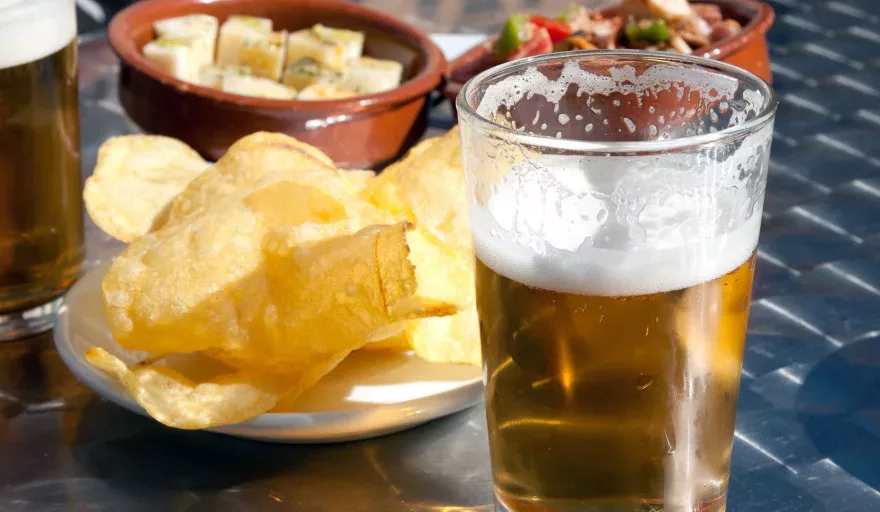UK-based crisps giant Walkers utilises technology alongside a brewery partnership to help the environment.
A SUSTAINABLE SYMBIOSIS
Beer and crisps are a classic combination.
Beer has been around for centuries and is ingrained into British culture as a staple alcohol for leisurely drinking. According to statista, beer remains one of the most popular forms of alcohol in the UK, making up an entire third of alcohol consumed.
Crisps too are equally as popular. In the UK alone, consumers buy six billion packets of crisps per year (averaging around 60 grams per week per person), with potato and carbohydrate snacks often eaten in place of a more substantial meal during the day.
One of the issues that arise from crisp consumption in particular is the amount of waste that is produced from empty packets, not to mention the large amount of CO2 emissions created by crisp factories and the general production process.
However, crisps firm Walkers has not only pledged to make its packaging 100 percent recyclable by 2025, but has actively adopted a method of production that will cut a substantial amount of these emissions from the manufacturing process of making crisps.
On 7th December, the company stated that it is going to work alongside a brewery and utilise new technology that is going to take CO2 from the fermentation process in beer production, to mix with potato waste, and use this combination to fertilise the soil for the potato crop of following years across many areas of the UK.
This is estimated to reduce Walker’s potato-based CO2 emissions by a massive 70 percent.
The brilliance of this innovative production method is that the emissions created by beer breweries, that are usually expelled into the atmosphere, are instead repurposed to make fertiliser – a method that creates the benefits of both achieving the breweries’ sustainability aims, that of Walkers’ environmental and production benefits, and actually saves them money in the process.
The method was trialled in 2020 and Walkers is currently incorporating the technology into its factory in Leicester, intending to begin the symbiotic and sustainable process starting with its 2022 crop.
The idea and technology were developed by a start-up company called CCm, through a grant from the UK government. The new process is designed to bring sustainability efforts into the fore for Walkers and the yet undecided brewery.
Of the many benefits that this innovative method will bring to the companies and environment, the recycled CO2 emissions are estimated to be the equivalent worth of 22,000 cars off the road – a staggering level of emission reduction, and a business practice that could be effectively utilised across the UK and beyond.
The technology that Walkers will be implementing is designed to connect to the crisp factory’s anaerobic digester – an element of the factory that makes use of food waste to generate the majority of the electricity required by the plant.
This works via the potato waste producing methane, that is in turn burned to create electricity to be used in the crisp-frying process, and so consequently saves on using wasteful fossil fuels. CCm’s technology will utilise the by-product methane waste to generate electricity onward into the future.
This revolutionary process will remove the potato left post-digestion and apply the brewery CO2 to it. This will then form the rich fertiliser that will put carbon back in the soil for plant growth and therefore preventing CO2 emissions from escaping and reaching the atmosphere.
The cycle of CO2 use has the potential to be applied across a multitude of industries and across the globe. PepsiCo, the brand owner of Walkers, has set its sights on applying these benefits to European markets as well as alternative crops such as corn and oats.
The sustainable reuse of potato waste in addition to the capturing of carbon for reuse in the soil can be seen as a substantial progressive step towards a practical, efficient, and environmentally beneficial business practice.
The implementation of CCm’s technology, and the estimated result of a 70 percent reduction in emissions, is a huge opportunity for Walkers to showcase and lead the sustainability effort in the UK, and it may pave the way for a multitude of other companies to become involved with similar business and environmentally beneficial investments.



















